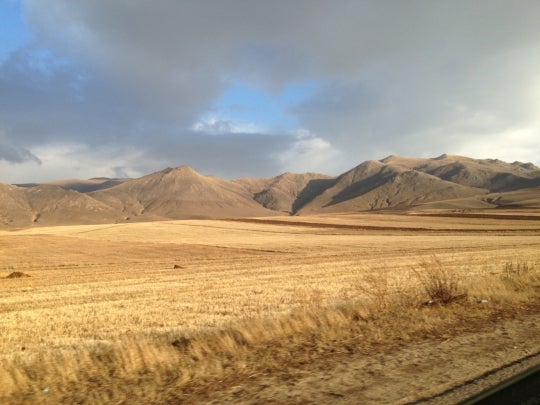
I recently spent three days in Yerevan on a mission to learn a bit more about Armenia’s overall development challenges for a World Bank study on “Connectivity”, before heading off to Tbilisi, Georgia and Baku, Azerbaijan to do the same.
It was my first time visiting Armenia, so it was a fascinating trip and I learned a tremendous amount about the country and its people.
It was my first time visiting Armenia, so it was a fascinating trip and I learned a tremendous amount about the country and its people.
Of course, in three days one can only get a small sample of the major issues that challenge development, rather than a rich flavor for the deep subtleties that represent the people or factors that drive the economy. But, given my basic knowledge of the country, the new information I gained was a tremendous leap forward.
Armenia holds much promise, particularly because it has a rich cultural heritage, business potential, and a legacy of good education. But it also has challenges keeping its best and brightest citizens at home. A case in point is that more Armenians live outside the country (about 5 million) than inside it (about 3 million).
Many recent migrants are economic refugees seeking a better life abroad. This is a reflection of the lack of economic opportunities in the country, but also the ease of migration given the established diaspora communities in the United States and Europe (which left the country in the early 20 th century), as well as the new wave of emigration since the country opened following the collapse of the Soviet Union.
Among all the meetings I had, including with government officials and intellectuals that are striving to accelerate Armenia’s economic opportunities, probably the most insightful conversation I had was with my taxi driver on the five hour trip to Tbilisi. I asked him how the economy was and he simply said in broken English, “Not good, not too many jobs.”
He told me that he had been to the United States and was a truck driver for a few years, but returned to Armenia to be with his family. Since his return in 2010, the economy has slowed and jobs are scarce, so he is now thinking about going back to the United States to find better opportunities. When I asked him if things in Armenia were better now than before independence, he replied that they were not because “before, all the factories were open and everyone had jobs, now the factories are closed and not many people have jobs.”
Regardless of whether economists recognize or not that the old model was unsustainable and that loss-making factories would have had to eventually close anyway, or whether it is simply nostalgia (we sometimes have selective memories and believe times were always better in the past), the fact remains that without an improvement in the economic situation, many Armenians will continue to “vote with their feet” and emigrate to other countries.
On the other hand, there is a positive side to this free-flow of migrants and large diaspora - which can be a resource for Armenia. Not only are emigrants from Armenia to America and Europe a powerful source of remittances, but they are also a source of technology transfer and a positive influence on local governance and development.
During my trip, Arman Khachaturyan of the Armenian National Competitiveness Council told me that Armenian businessmen living abroad are investing in the country and are a positive force for improving institutions. Moreover, the Enterprise Incubator Foundation, headed by Bagrat Yengibaryan and supported by donors including the World Bank’s E-Society and Competitiveness Project, provides financing for new tech start-ups. New start-ups oftentimes gain access to foreign markets with the help of Armenian businessmen living abroad. Connections do matter.
So, while my taxi driver - and new friend - may eventually return to the United States if Armenia’s labor market doesn’t soon improve, he is also a conduit for Armenia’s connectivity to the world and presents a clear voice for better institutions and opportunities in his home country. The country should take advantage of its most valuable resource - its people.


Join the Conversation